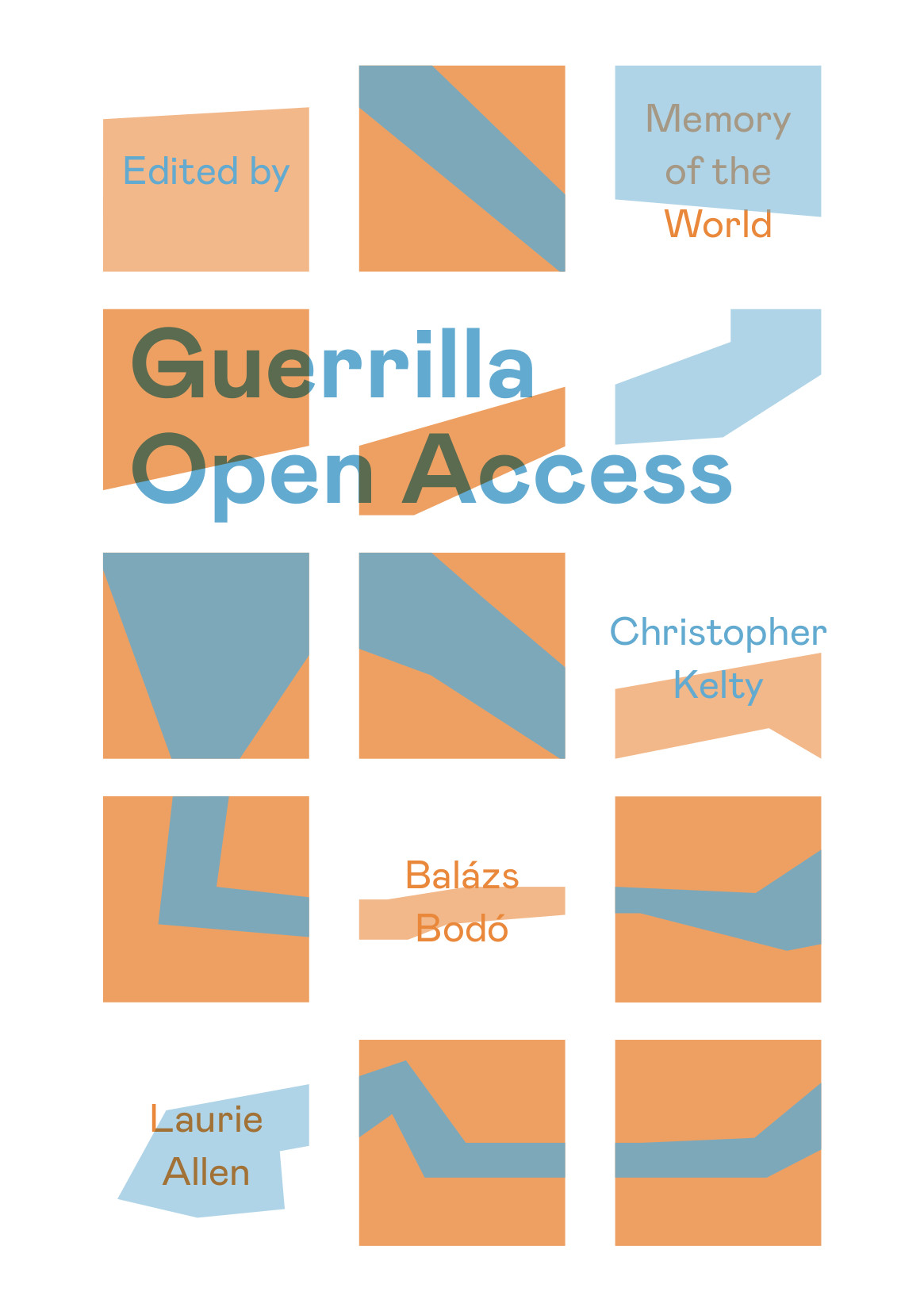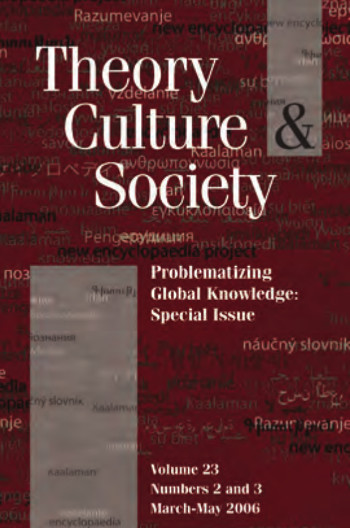Memory of the World (ed.): Guerrilla Open Access (2018)
Filed under pamphlet | Tags: · book, copyright, free software, knowledge production, open access, piracy, publishing, shadow library

“In the 1990s, the Internet offered a horizon from which to imagine what society could become, promising autonomy and self-organization next to redistribution of wealth and collectivized means of production. While the former was in line with the dominant ideology of freedom, the latter ran contrary to the expanding enclosures in capitalist globalization. This antagonism has led to epochal copyrights, where free software and piracy kept the promise of radical commoning alive.
As the contributions to this pamphlet indicate, the terms of struggle have shifted: not only do we have to continue defending our shadow libraries, but we need to take back the autonomy of knowledge production and rebuild institutional grounds of solidarity.”
With texts by Memory of the World, Christopher Kelty, Balázs Bodó, and Laurie Allen.
Publisher Post Office Press, Rope Press, and Memory of the World, Coventry, 2018
Radical Open Access II series
Creative Commons BY-SA 4.0 License
34 pages
Theory, Culture & Society 23(2-3): Problematizing Global Knowledge (2006)
Filed under book, journal | Tags: · aesthetics, archive, assemblage, body, classification, culture, encyclopedia, globalisation, information, knowledge, knowledge production, language, library, life, logic, media, modernity, network, public sphere, race, religion, science, space, technology, theory, time, translation, university, vitalism

In this special issue the TCS editorial board, along with colleagues in East and South-East Asia and other parts of the world, ventured in ‘encyclopaedic explorations’ in order to “rethink knowledge under the impact of globalization and digitization. The issue features over 150 entries and supplements on a range of topics which are addressed in terms of their relevance to knowledge formation, by contributors writing from a wide range of perspectives and different parts of the world. The entries and supplements are gathered under three main headings: metaconcepts, metanarratives and sites and institutions.”
Edited by Mike Featherstone, Couze Venn, Ryan Bishop and John Phillips, with Pal Ahluwalia, Roy Boyne, Beng Huat Chua, John Hutnyk, Scott Lash, Maria Esther Maciel, George Marcus, Aihwa Ong, Roland Robertson, Bryan Turner, Shiv Visvanathan, Shunya Yoshimi
With an Introduction by Mike Featherstone and Couze Venn
Publisher Sage, 2006
616 pages
Rhizomes, 30: Quantum Possibilities: The Work of Karen Barad (2016)
Filed under journal | Tags: · epistemology, feminism, knowledge production, materialism, ontology, philosophy, physics, quantum physics, queer, science
“In the past decade, Karen Barad’s oeuvre, especially the voluminous Meeting the Universe Halfway (2007), has attracted increasingly great attention in feminist philosophy, cultural studies and feminist science studies. Alongside scholars like Elizabeth Wilson and Vicki Kirby, she has spearheaded the recent feminist exploration of complex scientific issues, and presented new less categorical ways of thinking ontology and epistemology (or indeed onto-epistemology as she refers to it) as a result. Many of the terms introduced and developed by Barad, such as ‘intra-action’, ‘diffraction’ and ‘agential realism’ have shifted the standard metrics of knowledge production and her theories have inspired animated discussion in emerging critical strands as varied as the new materialism in feminism, object oriented ontology, post- and transhumanism, speculative realism, environmental and digital humanities, among others. In a critical climate that is becoming increasingly ‘Baradian’, this special issue on the ‘Quantum Possibilities’ of Barad’s work does not merely aim to reflect the engagements currently being made within these fields, but extends Barad’s ethos of continually rethinking our critical concepts and methodologies ‘without taking these distinctions to be foundational or holding them in place’. Creating ‘diffractive’, or new ‘quantum level’ means of reflecting on, and engaging with Barad’s work, the essays collected here stake out a new set of directions for their wide array of disciplinary identities.”
With essays by Joseph Rouse, Evelien Geerts and Iris van der Tuin, Rebekah Sheldon, Kathrin Thiele, Hanna Meißner, Andie Elizabeth Shabbar, Ulf Mellström, Martin Savransky, Dorothea Olkowski, Graham Harman, Levi R. Bryant, Rick Dolphijn, Katie King, Ino Mamic, and Myra J. Hird.
Edited by Karin Sellberg & Peta Hinton
Published 12 July 2016
Open access
ISSN 1555-9998

